
Malacca: A Time-Traveling Adventure in Malaysia
Welcome to Malacca, a city where history comes alive and cultures blend harmoniously. Located on the west coast of Malaysia, this UNESCO World Heritage site is a treasure trove of historical landmarks and vibrant street life. Stroll through Jonker Street, the heart of Malacca's Chinatown, where you can find an array of antique shops, local eateries, and lively night markets. The street is famous for its weekend night market, where you can sample local delicacies like chicken rice balls and cendol. Discover the rich history of Malacca by visiting the A Famosa fortress, one of the oldest surviving European architectural remains in Asia. Don't miss the iconic red Christ Church and the striking Stadthuys, built during the Dutch occupation in the 17th century. Take a river cruise along the Malacca River to see the city from a different perspective. The riverbanks are adorned with colorful murals and charming cafes, offering a picturesque view that is perfect for photography enthusiasts. For a deeper dive into the local culture, visit the Baba & Nyonya Heritage Museum. This museum showcases the unique Peranakan culture, a blend of Chinese and Malay traditions, through its well-preserved artifacts and guided tours.
Local tips in Malacca
- Visit Jonker Street during the weekend night market for the best food and shopping experience.
- Wear comfortable shoes as the city's historical sites are best explored on foot.
- Take a river cruise in the evening to enjoy the illuminated riverbanks and cooler temperatures.
- Try local delicacies such as chicken rice balls, satay celup, and Nyonya laksa.
- Carry an umbrella or a hat to protect yourself from the tropical sun.
Neighbourhoods in Malacca
Malacca: A Time-Traveling Adventure in Malaysia
Welcome to Malacca, a city where history comes alive and cultures blend harmoniously. Located on the west coast of Malaysia, this UNESCO World Heritage site is a treasure trove of historical landmarks and vibrant street life. Stroll through Jonker Street, the heart of Malacca's Chinatown, where you can find an array of antique shops, local eateries, and lively night markets. The street is famous for its weekend night market, where you can sample local delicacies like chicken rice balls and cendol. Discover the rich history of Malacca by visiting the A Famosa fortress, one of the oldest surviving European architectural remains in Asia. Don't miss the iconic red Christ Church and the striking Stadthuys, built during the Dutch occupation in the 17th century. Take a river cruise along the Malacca River to see the city from a different perspective. The riverbanks are adorned with colorful murals and charming cafes, offering a picturesque view that is perfect for photography enthusiasts. For a deeper dive into the local culture, visit the Baba & Nyonya Heritage Museum. This museum showcases the unique Peranakan culture, a blend of Chinese and Malay traditions, through its well-preserved artifacts and guided tours.
When is the best time to go to Malacca?
Iconic landmarks you can’t miss
Jonker Street Night Market
Explore the vibrant Jonker Street Night Market in Melaka, where delicious street food, unique crafts, and a lively atmosphere await every visitor.
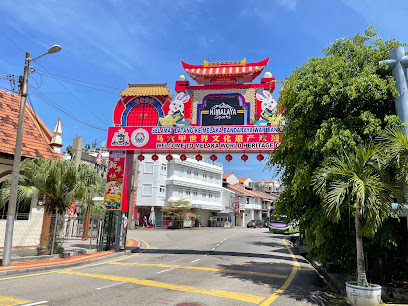
Taming Sari Tower (Malacca Tower)
Experience breathtaking views of Malacca from Taming Sari Tower, the first revolving tower in Malaysia, and immerse yourself in the city's rich history.
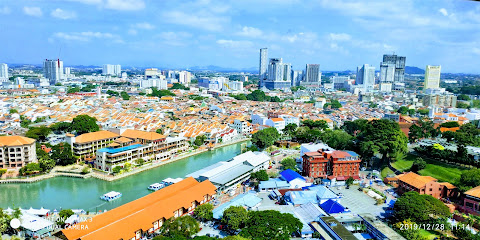
A Famosa
Discover the captivating history and stunning views at A Famosa Fortress, a key landmark in Melaka, Malaysia, showcasing its rich colonial past.
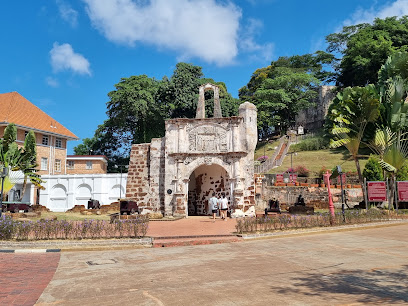
Melaka River Cruise Jeti Taman Rempah
Experience the enchanting Melaka River Cruise and discover breathtaking views of historical landmarks and vibrant riverside culture.
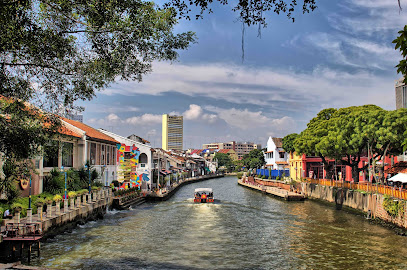
Melaka River Cruise Jeti Quayside
Experience the beauty and history of Melaka aboard the enchanting Melaka River Cruise, a UNESCO World Heritage site adventure.
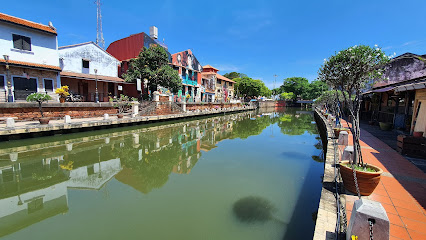
Muzium Samudera (Flor de La Mar)
Uncover the rich maritime history of Malaysia at Muzium Samudera, a unique museum showcasing the legendary Flor de La Mar ship.
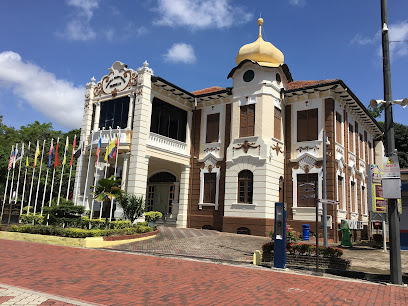
Dutch Square (Red Square) Melaka
Explore the historic Dutch Square in Melaka, a vibrant hub of culture, architecture, and local delights in Malaysia's UNESCO World Heritage city.
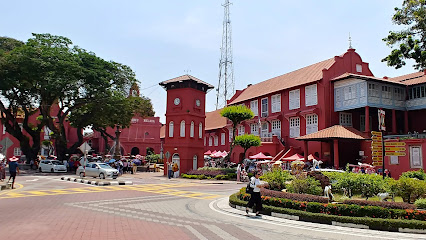
Jonker Walk Melaka
Experience the vibrant culture and delicious street food at Jonker Walk Melaka, a must-visit night market in Malaysia's historic city.
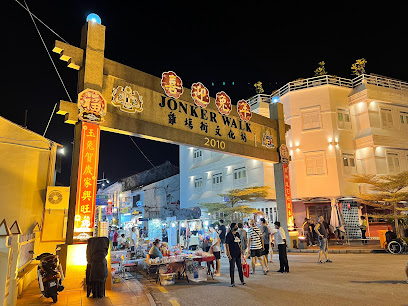
The Shore Sky Tower
Discover panoramic views of Melaka from The Shore Sky Tower, an observation deck showcasing the city's historical charm and modern skyline.
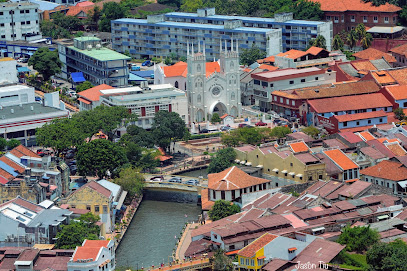
Perigi Hang Tuah
Explore the historical depths of Perigi Hang Tuah, a revered landmark in Malacca celebrating the legendary Malay hero and rich cultural heritage.
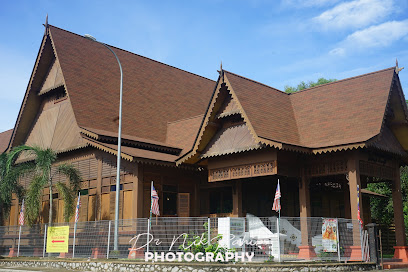
Melaka Sultanate Palace Museum
Explore the vibrant history of Malaysia at the Melaka Sultanate Palace Museum, where culture and heritage come alive in a stunning architectural setting.
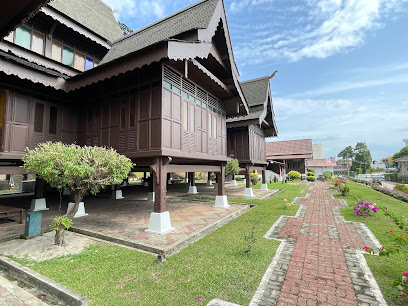
Church of Saint Paul, Malacca
Explore the Church of Saint Paul, a historic landmark in Malacca, Malaysia, and uncover the stories of the past in this timeless architectural marvel.
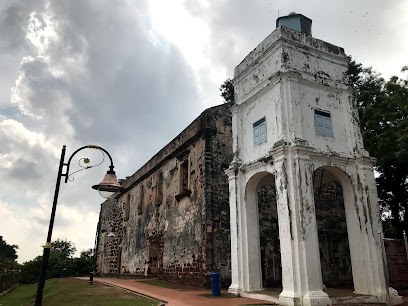
Upside Down House Melaka (Rumah Terbalik Melaka)
Discover the enchanting Upside Down House Melaka, a whimsical attraction perfect for family fun and unforgettable photo moments in Malaysia.
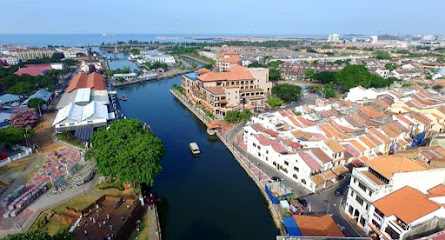
MALAYSIA HERITAGE STUDIOS
Explore Malaysia Heritage Studios: a cultural haven in Melaka showcasing traditional arts, crafts, and performances amidst a serene park setting.
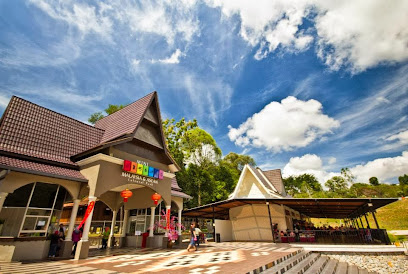
The Orangutan House
Explore The Orangutan House in Melaka, where art meets wildlife conservation, creating an unforgettable experience for eco-conscious travelers.
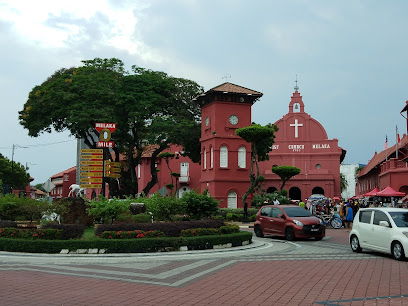
Unmissable attractions to see
Jonker Street Night Market
Discover the lively Jonker Street Night Market in Melaka, where local culture, delicious street food, and unique shopping come alive every weekend.
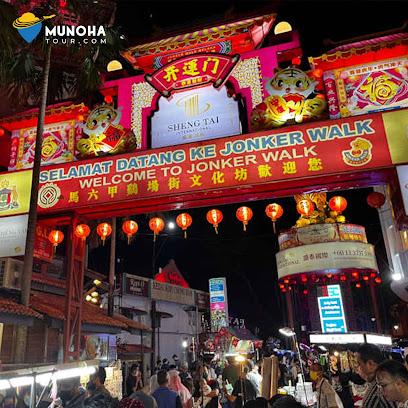
Taming Sari Tower (Malacca Tower)
Discover breathtaking views of Melaka from the Taming Sari Tower, Malaysia's first rotating tower offering panoramic cityscapes and historical landmarks.
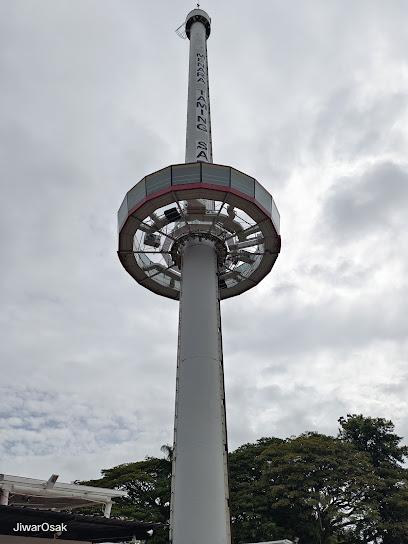
A Famosa
Explore the iconic A Famosa, a historic fortress in Malacca, revealing the city’s colonial past amidst stunning landscapes.
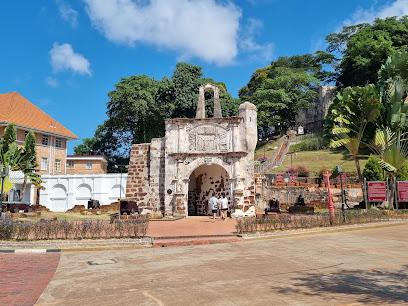
Zoo Melaka
Explore the diverse wildlife at Zoo Melaka in Ayer Keroh, a family-friendly destination brimming with fun, education, and conservation efforts.
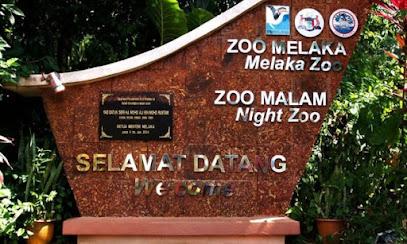
Muzium Samudera (Flor de La Mar)
Discover the maritime legacy of Malaysia at Muzium Samudera, a unique museum showcasing the rich history of Melaka's seafaring past.
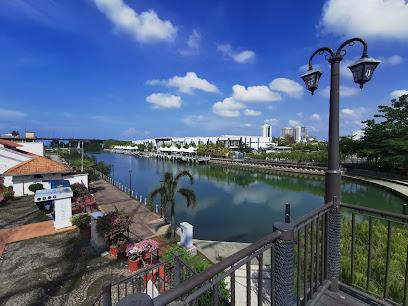
Dutch Square (Red Square) Melaka
Experience the rich history and vibrant culture of Malacca at Dutch Square, a captivating landmark filled with stunning architecture and lively markets.
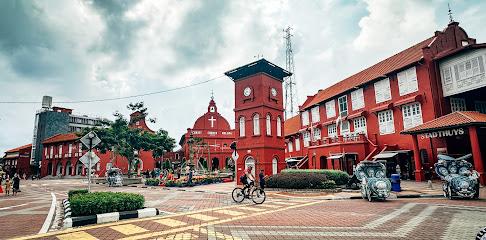
The Shore Sky Tower
Experience breathtaking views of Malacca from The Shore Sky Tower, the tallest observation deck in the city, perfect for sightseeing and photography.
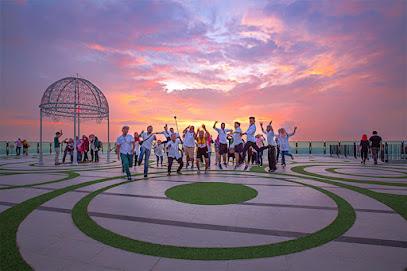
Cheng Hoon Teng Temple
Discover the historical beauty of Cheng Hoon Teng Temple, the oldest Chinese temple in Malaysia, nestled in the vibrant heart of Malacca.
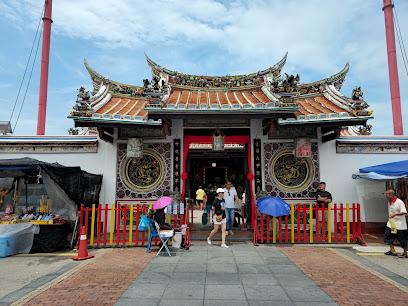
Melaka Botanical Garden
Explore the lush landscapes of Melaka Botanical Garden, a tranquil nature preserve in Ayer Keroh, showcasing Malaysia's rich biodiversity and serene beauty.
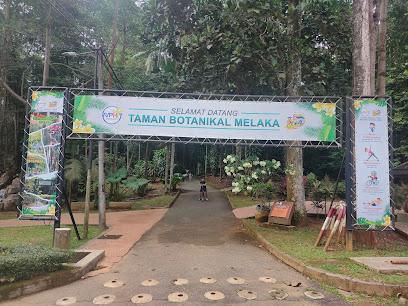
Perigi Hang Tuah
Explore Perigi Hang Tuah, a historical jewel in Malacca, rich in legend and surrounded by lush landscapes, offering a glimpse into Malaysia's cultural heritage.
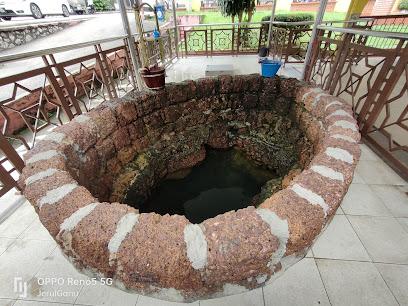
Taman Buaya & Rekreasi Melaka (Melaka Crocodile & Recreational Park)
Discover the captivating world of crocodiles and enjoy family fun at Taman Buaya & Rekreasi Melaka, a top animal park and recreational destination.
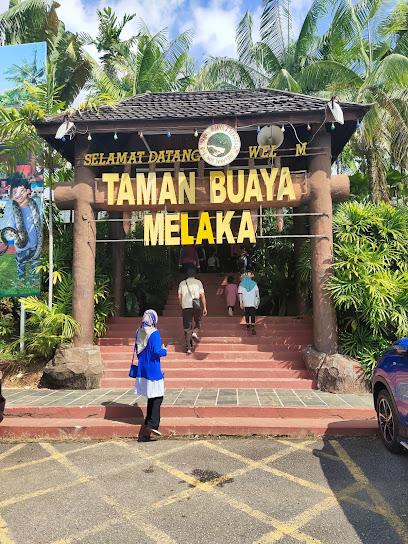
Melaka Sultanate Palace Museum
Explore the Melaka Sultanate Palace Museum, a captivating journey through the history and culture of Malaysia's iconic sultanate.
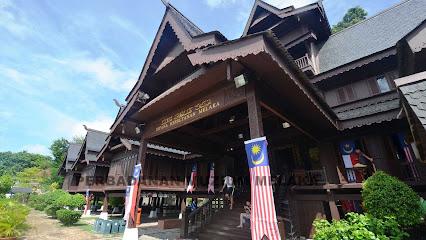
Masjid Kampung Hulu
Explore the architectural beauty and cultural heritage of Masjid Kampung Hulu, a historic mosque in the heart of Melaka, Malaysia.
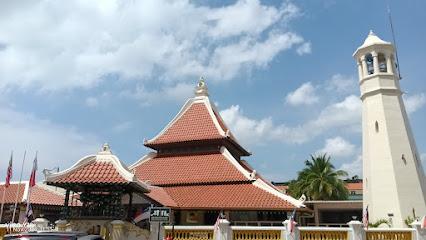
Baba & Nyonya Heritage Museum
Experience the vibrant culture and rich history of the Peranakan people at the Baba & Nyonya Heritage Museum in Melaka.
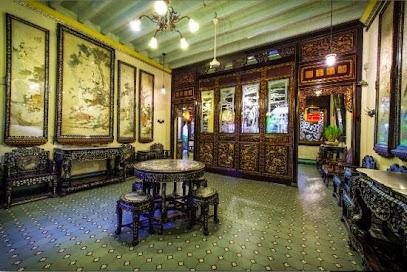
A'Famosa Water Theme Park (Water World)
Experience the ultimate aquatic adventure at A'Famosa Water Theme Park, Melaka's top destination for family fun and thrilling water rides.
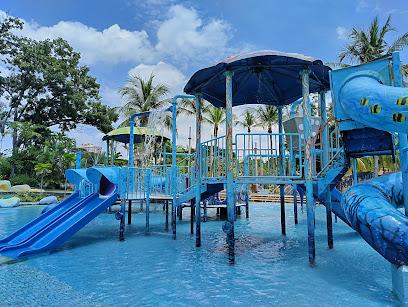
Essential places to dine
Mondrian Restaurant Café
Discover Mondrian Restaurant Café in Melaka - where culinary excellence meets inviting ambiance for an unforgettable dining experience.
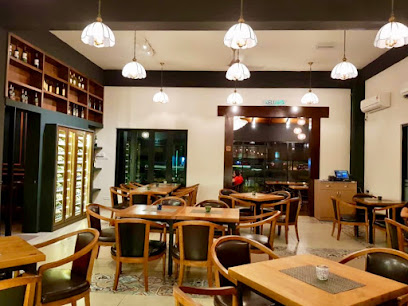
Ee Ji Ban Chicken Rice Ball
Discover the unique flavors of Melaka at Ee Ji Ban Chicken Rice Ball - where traditional Chinese cuisine meets Halal excellence.
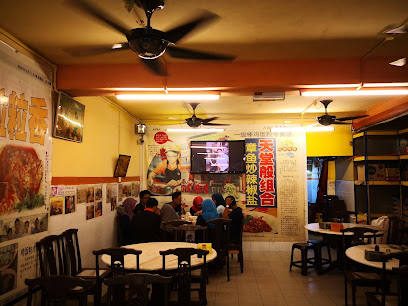
Hard Rock Cafe Melaka
Discover American cuisine with a rock 'n' roll twist at Hard Rock Cafe Melaka - where great food meets iconic music memorabilia.
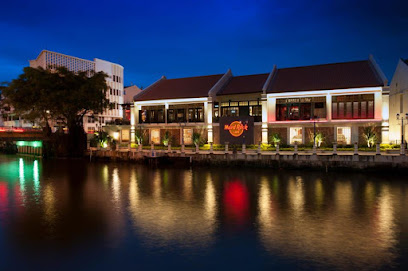
GravyBaby Melaka at Jonker Street
Experience the perfect blend of local flavors and international cuisine at GravyBaby Melaka on Jonker Street.
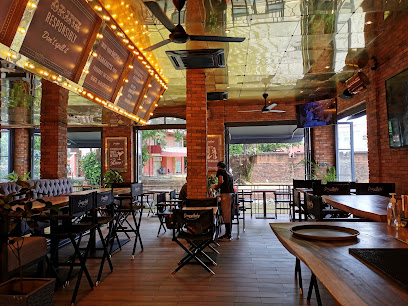
Nancy's Kitchen
Experience authentic Nyonya cuisine at Nancy's Kitchen in Melaka – a culinary journey through rich flavors and traditions.
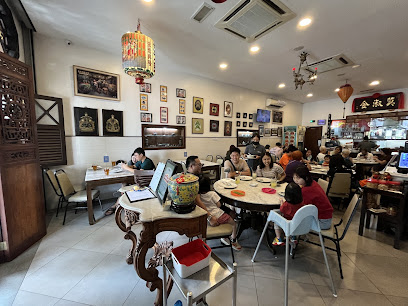
The Baboon House
Experience unique decor and delicious local flavors at The Baboon House in Melaka – a must-visit culinary destination for every tourist.
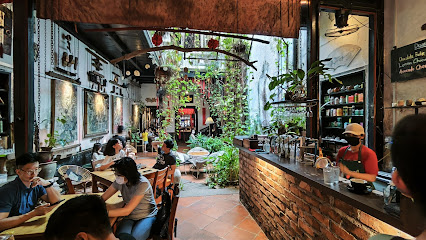
Restoran Tong Sheng
Discover fresh seafood delights at Restoran Tong Sheng in Melaka – where local flavors meet exceptional dining experiences.
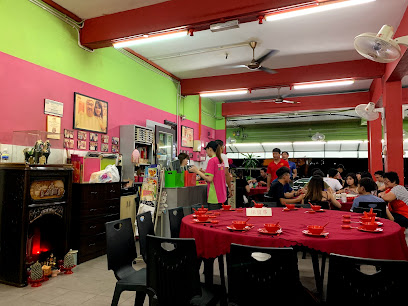
Wild Coriander Melaka
Experience authentic Malay cuisine at Wild Coriander Melaka—where tradition meets flavor in every dish.
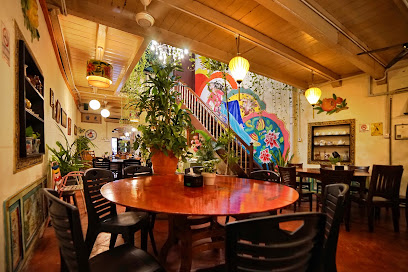
Geographér Café
Discover Geographér Café in Melaka - where local flavors meet modern cafe vibes amidst cultural charm.
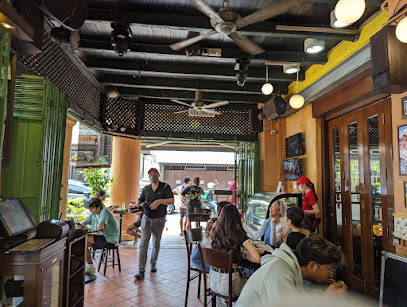
Restaurant BABA KAYA - One Malaysian Cuisine
Experience authentic Malaysian cuisine at Restaurant BABA KAYA in Melaka – where every dish celebrates tradition and flavor.
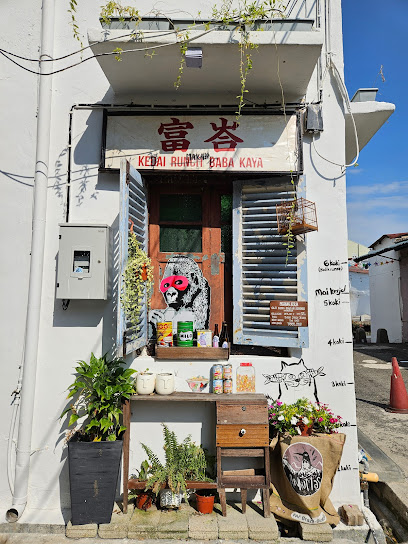
Restaurant Selvam
Experience authentic Indian cuisine at Restaurant Selvam in Melaka - a must-visit for breakfast lovers and spice enthusiasts.
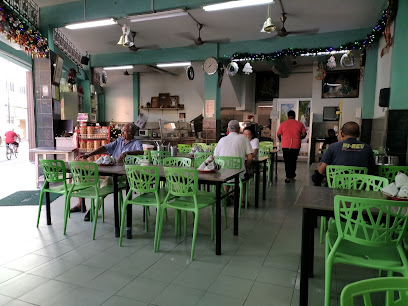
Restaurant Bei Zhan
Experience authentic Chinese cuisine at Restaurant Bei Zhan in Malacca - a must-visit culinary destination for food lovers.
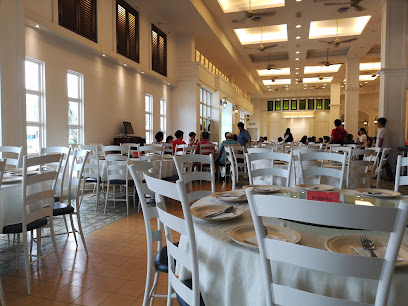
Restoran Nyonya Makko
Experience authentic Nyonya cuisine at Restoran Nyonya Makko, where every dish tells a story of heritage and flavor.
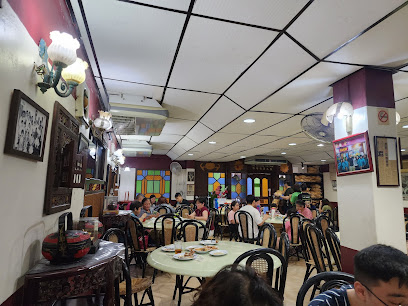
ATLANTIC NYONYA @ MELAKA RAYA
Discover authentic Nyonya cuisine at Atlantic Nyonya in Melaka – where rich flavors meet cultural heritage.
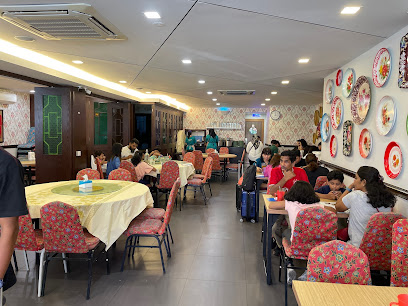
MAMASITA MEXICAN RESTAURANT & TAPAS BAR
Savor authentic Mexican cuisine at Mamasita Mexican Restaurant & Tapas Bar in Melaka – where every meal is a festive celebration.
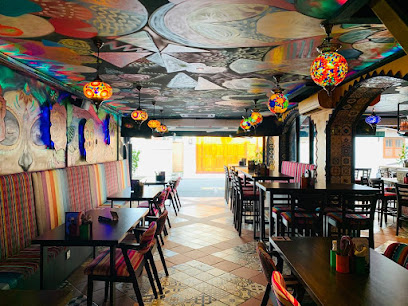
Markets, malls and hidden boutiques
Jonker Street Night Market
Discover the bustling Jonker Street Night Market in Melaka, a vibrant hub of street food, crafts, and cultural performances that celebrates local heritage.
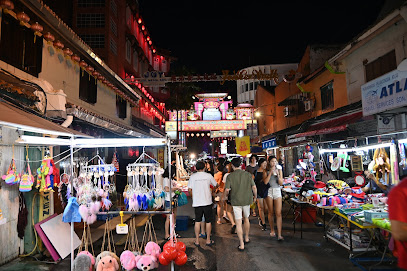
Dataran Pahlawan Melaka Megamall
Discover shopping, dining, and entertainment at Dataran Pahlawan Melaka Megamall, a vibrant hub in the heart of Melaka, Malaysia.
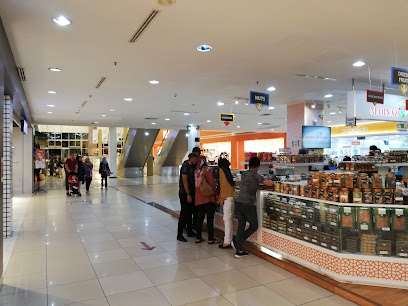
AEON MALL Bandaraya Melaka
Discover the vibrant shopping scene at AEON MALL Bandaraya Melaka, featuring diverse shops, delicious dining, and family-friendly entertainment.
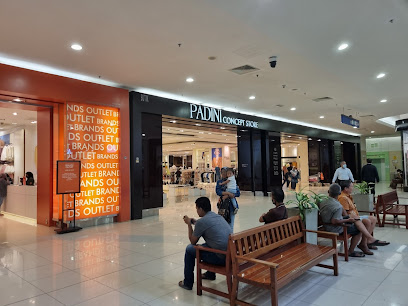
Freeport A'Famosa Outlet
Explore Freeport A'Famosa Outlet in Malacca for a vibrant shopping experience with local and international brands, dining, and entertainment.
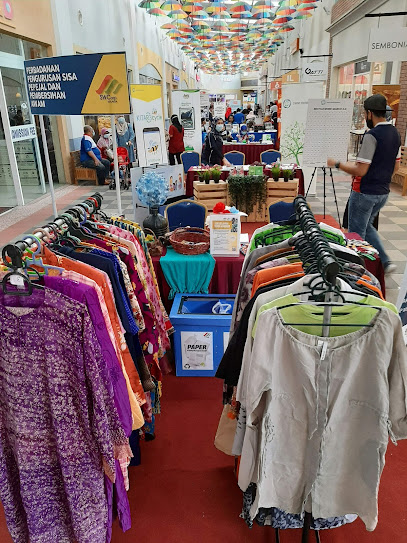
Mahkota Parade
Explore Mahkota Parade, a vibrant shopping mall in Melaka offering diverse shops, dining options, and family-friendly entertainment.
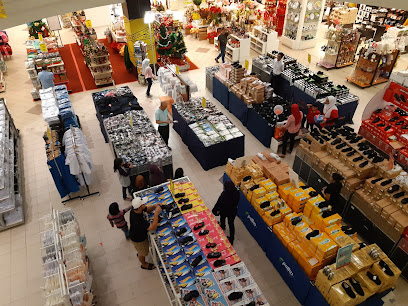
ElementX Mall
Explore ElementX Mall in Melaka for a delightful shopping experience with diverse dining and entertainment options.
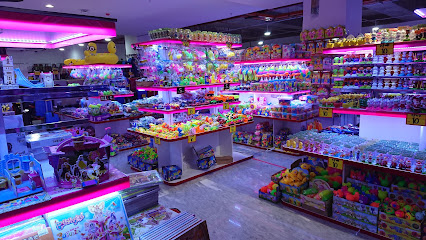
Melaka Mall
Explore Melaka Mall for a unique shopping experience blending local culture and modern retail in the heart of Melaka.
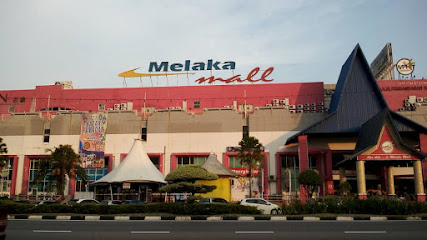
Family Store Melaka @ KIPMall
Explore a diverse selection of groceries and Asian ingredients at Family Store Melaka @ KIPMall, a vibrant shopping destination for all.
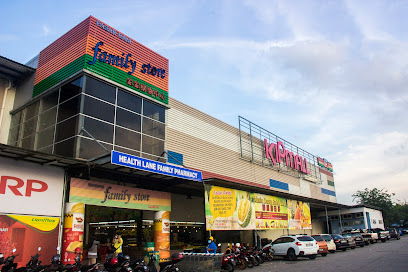
Family Store Melaka Mall
Discover the diverse offerings of Family Store Melaka Mall, your go-to destination for authentic Asian groceries and local Malaysian products.
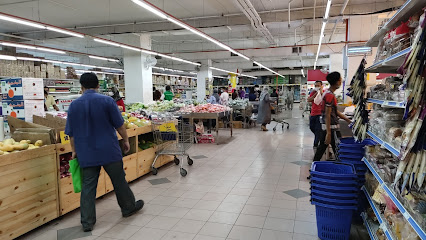
Brands Outlet Dataran Pahlawan
Explore the latest fashion trends at Brands Outlet Dataran Pahlawan, your ultimate shopping destination in Melaka with great deals on clothing and accessories.
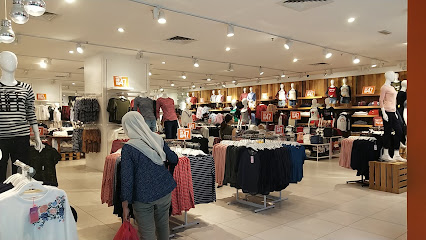
The Shore Shopping Gallery
Discover the perfect blend of shopping, dining, and entertainment at The Shore Shopping Gallery, a must-visit in Melaka.
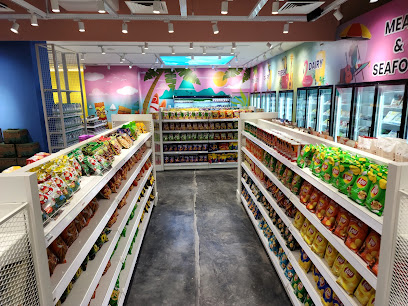
Muaz Wholesale Emporium (Melaka)
Explore the vibrant Muaz Wholesale Emporium in Melaka for unique clothing and competitive prices that showcase local fashion trends.
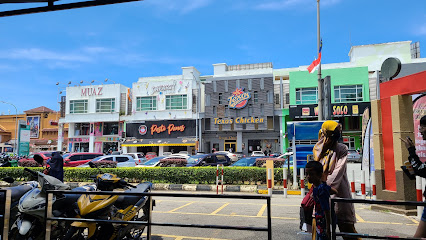
Jonker Gallery (留念精品店)
Explore a treasure trove of unique souvenirs and local crafts at Jonker Gallery in the heart of Melaka, where every item tells a story.
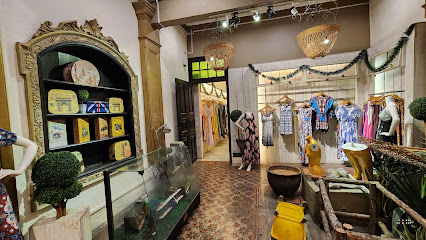
Baby Shop Dataran Pahlawan
Explore Baby Shop Dataran Pahlawan in Malacca for a diverse range of top-quality baby products and exceptional customer service.
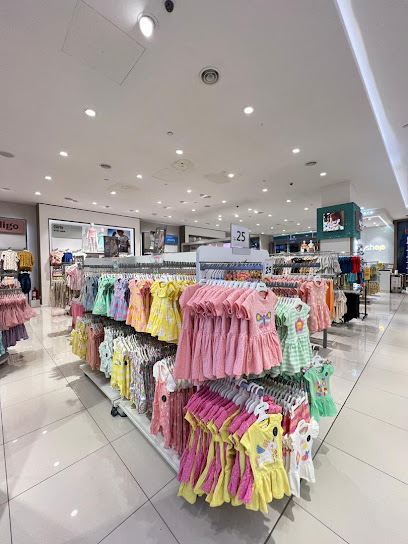
H&M
Explore the latest fashion trends at H&M in Malacca, where style meets affordability in a vibrant shopping environment.
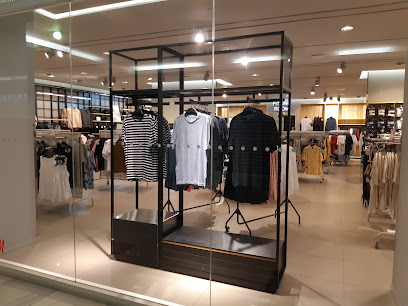
Essential bars & hidden hideouts
Tipsy Bridge
Discover the vibrant nightlife at Tipsy Bridge, a unique bar in Melaka offering an unforgettable atmosphere and delightful drinks.
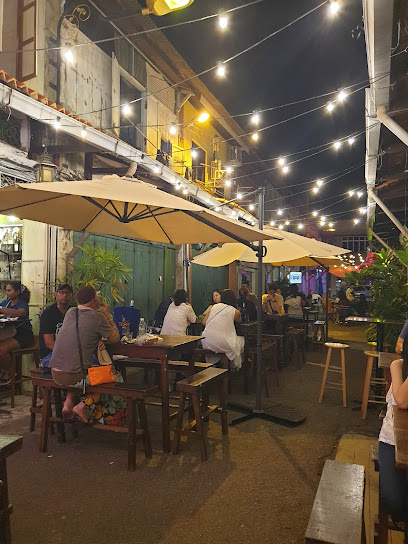
REGGAE ON THE RIVER MELAKA
Dive into the vibrant nightlife of Melaka at Reggae on the River, where music and culture blend in a delightful riverside retreat.
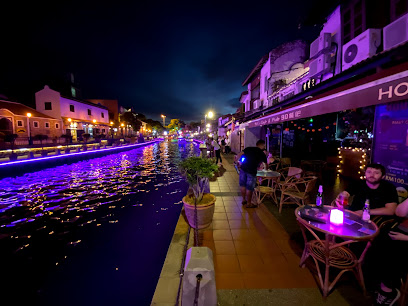
Asap House | Waterfront Melaka
Experience the vibrant nightlife of Melaka at Asap House, a waterfront bar offering stunning views, delicious drinks, and a lively atmosphere.
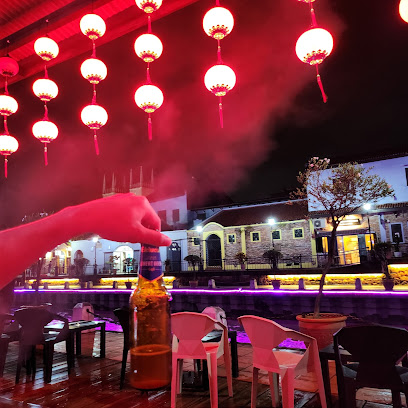
Budi
Discover Budi, Melaka's premier cocktail bar, where creative drinks and a vibrant atmosphere await you in Kampung Jawa.
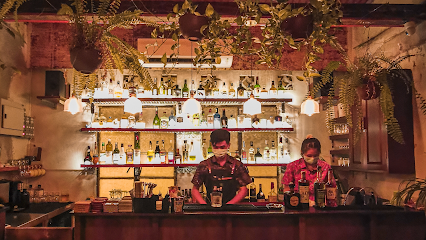
The Sandman by Blind Tiger Ent
Discover the vibrant nightlife of Melaka at The Sandman, where unique cocktails and lively atmosphere await in a charming bar setting.
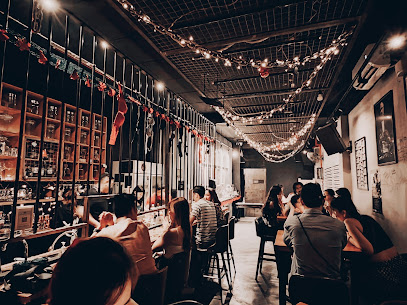
Sin Hiap Hin
Experience the vibrant nightlife of Melaka at Sin Hiap Hin, a bar renowned for its unique ambiance and exquisite drink selection.
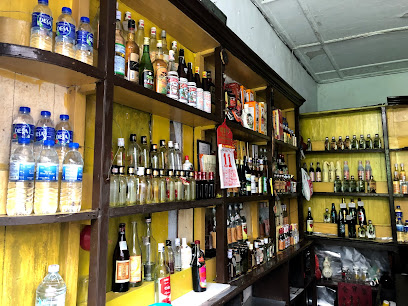
Bernie's Bar/Pub
Discover the vibrant atmosphere of Bernie's Bar in Melaka, where great drinks and lively entertainment await you.
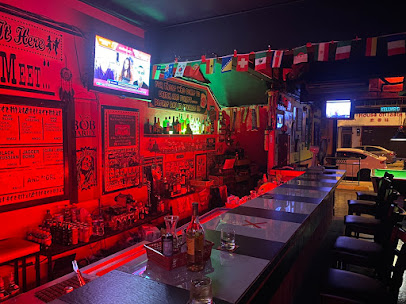
Yu Neighbourhood
Discover the vibrant cocktail scene at Yu Neighbourhood, a must-visit bar in the heart of Melaka, offering unique drinks and an inviting atmosphere.
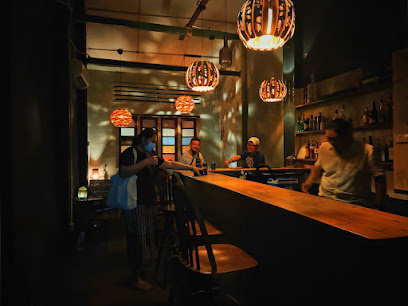
Societe Bar
Unwind at Societe Bar, a lively sports bar in Melaka Raya, offering great drinks and an energetic atmosphere for an unforgettable night out.
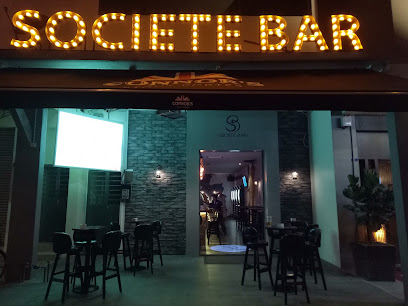
Go Lounge & Bistro
Go Lounge & Bistro: A Vibrant Bar in Melaka Offering Great Music, Cocktails, and an Unforgettable Nightlife Experience.
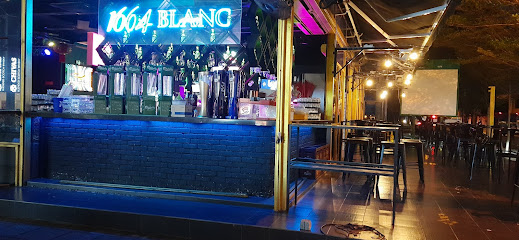
Purgatory
Discover the vibrant nightlife of Melaka at Purgatory, a lively bar known for its exquisite cocktails and electric atmosphere.
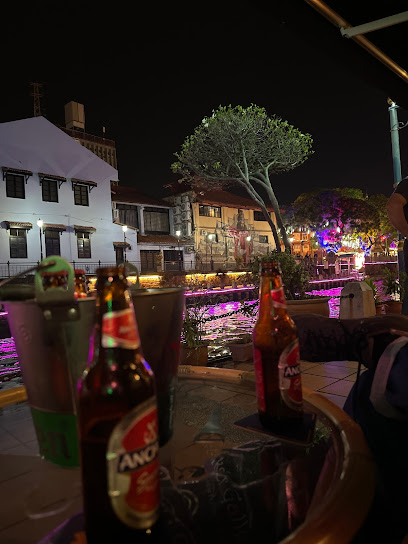
Medusa Vibe
Discover the vibrant ambiance and expertly crafted cocktails at Medusa Vibe, a must-visit cocktail bar in Melaka’s bustling nightlife scene.
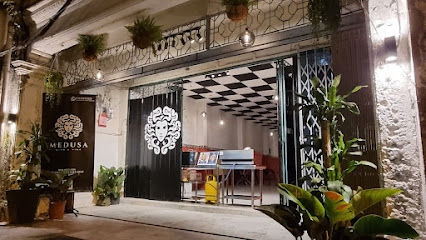
Her Room
Discover the enchanting ambiance of Her Room, a speakeasy cocktail bar in Melaka, offering innovative drinks and a vibrant nightlife experience.
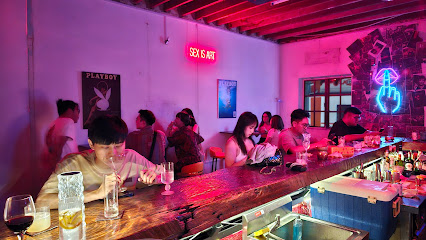
久窝 De Largo Band Lounge
Discover Melaka's nightlife at De Largo Band Lounge - a vibrant live music bar offering an unforgettable evening of entertainment and fun.
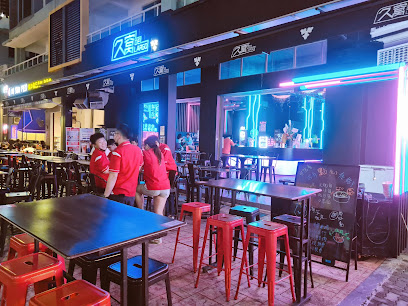
Local Phrases
-
- HelloApa khabar
[ah-pa kha-bar] - GoodbyeSelamat tinggal
[se-la-mat ting-gal] - YesYa
[ya] - NoTidak
[tee-dak] - Please/You're welcomeSila
[see-la] - Thank youTerima kasih
[te-ree-ma ka-seh] - Excuse me/SorryMaaf
[ma-af] - How are you?Apa khabar?
[ah-pa kha-bar] - Fine. And you?Baik. Dan awak?
[ba-ik. dan a-wak] - Do you speak English?Boleh cakap bahasa Inggeris?
[bo-leh cha-kap ba-ha-sa ing-ge-ris] - I don't understandSaya tidak faham
[sa-ya tee-dak fa-ham]
- HelloApa khabar
-
- I'd like to see the menu, pleaseSaya ingin lihat menu, sila
[sa-ya in-gin lee-hat me-nu, see-la] - I don't eat meatSaya tidak makan daging
[sa-ya tee-dak ma-kan da-ging] - Cheers!Sihat!
[si-hat] - I would like to pay, pleaseSaya ingin membayar, sila
[sa-ya in-gin mem-ba-yar, see-la]
- I'd like to see the menu, pleaseSaya ingin lihat menu, sila
-
- Help!Tolong!
[to-long] - Go away!Pergi jauh!
[per-gi ja-uh] - Call the Police!Panggil polis!
[pang-gil po-lis] - Call a doctor!Panggil doktor!
[pang-gil dok-tor] - I'm lostSaya sesat
[sa-ya se-sat] - I'm illSaya sakit
[sa-ya sa-kit]
- Help!Tolong!
-
- I'd like to buy...Saya ingin membeli...
[sa-ya in-gin mem-be-lee] - I'm just lookingSaya hanya melihat
[sa-ya han-ya me-lee-hat] - How much is it?Berapa harganya?
[be-ra-pa har-ga-nya] - That's too expensiveItu terlalu mahal
[i-tu ter-la-lu ma-hal] - Can you lower the price?Boleh kurangkan harga?
[bo-leh kur-ang-kan har-ga]
- I'd like to buy...Saya ingin membeli...
-
- What time is it?Jam berapa sekarang?
[jam be-ra-pa se-ka-rang] - It's one o'clockPukul satu
[pu-kul sa-too] - Half past (10)Pukul setengah (sepuluh)
[pu-kul se-ten-gah (se-pu-luh)] - MorningPagi
[pa-gi] - AfternoonPetang
[pe-tang] - EveningMalam
[ma-lam] - YesterdaySemalam
[se-ma-lam] - TodayHari ini
[ha-ri i-ni] - TomorrowEsok
[e-sok] - 1Satu
[sa-too] - 2Dua
[du-a] - 3Tiga
[ti-ga] - 4Empat
[em-pat] - 5Lima
[li-ma] - 6Enam
[e-nam] - 7Tujuh
[tu-juh] - 8Lapan
[la-pan] - 9Sembilan
[sem-bi-lan] - 10Sepuluh
[se-pu-luh]
- What time is it?Jam berapa sekarang?
-
- Where's a/the...?Di mana...
[dee ma-na] - What's the address?Alamatnya di mana?
[a-la-mat-nya dee ma-na] - Can you show me (on the map)?Boleh tunjukkan saya (di peta)?
[bo-leh toon-jook-kan sa-ya (dee pe-ta)] - When's the next (bus)?Bila bas seterusnya?
[bee-la bas se-ter-us-nya] - A ticket (to ....)Sebuah tiket (untuk ...)
[se-u-ah tee-ket (oon-took)]
- Where's a/the...?Di mana...
History of Malacca
-
Malacca was founded in the early 15th century by Parameswara, a Sumatran prince who fled political instability in his homeland. According to legend, while resting under a Malacca tree, he witnessed a mouse deer outwitting his hunting dogs, inspiring him to establish a settlement there. The strategic location along the Straits of Malacca allowed the city to flourish as a bustling trade hub.
-
During the 15th century, the Sultanate of Malacca reached its zenith under the rule of Sultan Mansur Shah. The city became a cosmopolitan center where traders from China, India, Arabia, and Europe converged. Malacca's strategic position and the implementation of the Undang-Undang Laut Melaka (Maritime Laws of Malacca) transformed it into one of the most important trading ports in Southeast Asia.
-
In 1511, the Portuguese under the command of Afonso de Albuquerque captured Malacca, marking the start of European colonial influence in Southeast Asia. The Portuguese sought control over the lucrative spice trade and fortified the city with the construction of A Famosa, a robust fortification whose remnants still stand today.
-
The Dutch East India Company (VOC) seized Malacca from the Portuguese in 1641 after a prolonged siege. The Dutch rebuilt the city's fortifications, including the iconic Stadthuys, which served as the administrative center. Malacca under Dutch rule saw a shift in trade dynamics, although the city remained an important waypoint in the spice trade.
-
In the early 19th century, Malacca came under British control following the Anglo-Dutch Treaty of 1824. The British focused on the development of Penang and Singapore, which overshadowed Malacca. However, the city retained its historical charm, with various colonial buildings and cultural influences preserved.
-
During World War II, Malacca fell under Japanese occupation from 1942 to 1945. The period was marked by hardship and resistance, as the local population endured oppressive rule and contributed to the broader struggle for Malaya's independence.
-
Malacca played a role in the broader narrative of Malaya's quest for independence from British colonial rule. On August 31, 1957, Malaya gained independence, and Malacca became part of the Federation of Malaya. The city's rich history and diverse culture continue to be celebrated in modern Malaysia.
-
In 2008, the historic city of Malacca was designated a UNESCO World Heritage Site alongside George Town in Penang. This recognition highlighted Malacca's unique cultural and architectural heritage, drawing attention to its well-preserved colonial buildings, vibrant street art, and multicultural legacy.
Malacca Essentials
-
Malacca is located on the west coast of Peninsular Malaysia. The nearest major airport is Kuala Lumpur International Airport (KLIA), which is about 145 kilometers away. From KLIA, you can take a bus, taxi, or rent a car to Malacca. The bus journey typically takes around 2 to 2.5 hours. Alternatively, you can take a train to Tampin Station and then a taxi or bus to Malacca, which takes around 3 hours in total.
-
Malacca has a range of transportation options. The town center is quite walkable, but for longer distances, you can use taxis, ride-sharing services like Grab, or rent a bicycle or motorbike. Public buses are available and connect various parts of the city. Trishaws are also a popular mode of transport for short distances and tours around the historical areas.
-
The official currency is the Malaysian Ringgit (MYR). Credit cards are widely accepted in hotels, restaurants, and larger shops, but smaller vendors and markets may only accept cash. ATMs are plentiful throughout Malacca, so it's easy to withdraw money as needed. It's a good idea to carry some cash for small purchases and in case you visit places that do not accept cards.
-
Malacca is generally safe for tourists, but it's important to take standard precautions. Avoid walking alone at night in poorly-lit areas and keep an eye on your belongings in crowded spots. Be cautious in areas such as Jonker Street and the Malacca Riverfront, where pickpocketing can occur. Always use registered taxis or ride-sharing services.
-
In case of an emergency, dial 999 for police, fire, or medical assistance. Malacca has several hospitals and clinics that provide medical care. It's advisable to have travel insurance that covers medical emergencies. For minor health issues, pharmacies are readily available throughout the city.
-
Fashion: Do dress modestly, especially when visiting religious sites. Avoid wearing overly revealing clothing. Religion: Do respect local customs and remove your shoes before entering mosques or temples. Public Transport: Do give up your seat to elderly passengers. Don’t eat or drink on public transport. Greetings: Do greet people with a smile or a slight bow. A handshake is common but use your right hand. Eating & Drinking: Do try local dishes and be open to new flavors. Don’t refuse food or drink as it may be considered impolite.
-
To experience Malacca like a local, visit the morning markets where you can find fresh produce and local delicacies. Engage with locals at coffee shops or 'kopitiams' to learn about their way of life. Don't miss the night market on Jonker Street for an array of street food and unique souvenirs. For a more relaxed experience, take a boat ride along the Malacca River in the evening to see the city’s lights.
Trending Landmark in Malacca
-
Jonker Street Night Market
-
Taming Sari Tower (Malacca Tower)
-
A Famosa
-
Melaka River Cruise Jeti Taman Rempah
-
Melaka River Cruise Jeti Quayside
-
Muzium Samudera (Flor de La Mar)
-
Dutch Square (Red Square) Melaka
-
Jonker Walk Melaka
-
The Shore Sky Tower
-
Perigi Hang Tuah
-
Melaka Sultanate Palace Museum
-
Church of Saint Paul, Malacca
-
Upside Down House Melaka (Rumah Terbalik Melaka)
-
MALAYSIA HERITAGE STUDIOS
-
The Orangutan House
Nearby Cities to Malacca
-
Things To Do in Kuala Lumpur
-
Things To Do in Johor Bahru
-
Things To Do in Jurong
-
Things To Do in Sembawang
-
Things To Do in Yishun
-
Things To Do in Bukit Timah
-
Things To Do in Singapore
-
Things To Do in Orchard Road
-
Things To Do in Little India
-
Things To Do in Clarke Quay
-
Things To Do in Bugis
-
Things To Do in Chinatown
-
Things To Do in Sentosa
-
Things To Do in Marina Bay
-
Things To Do in East Coast Park
















